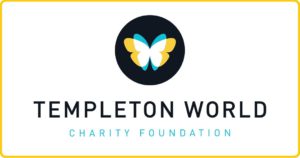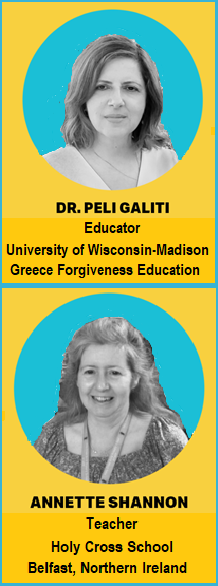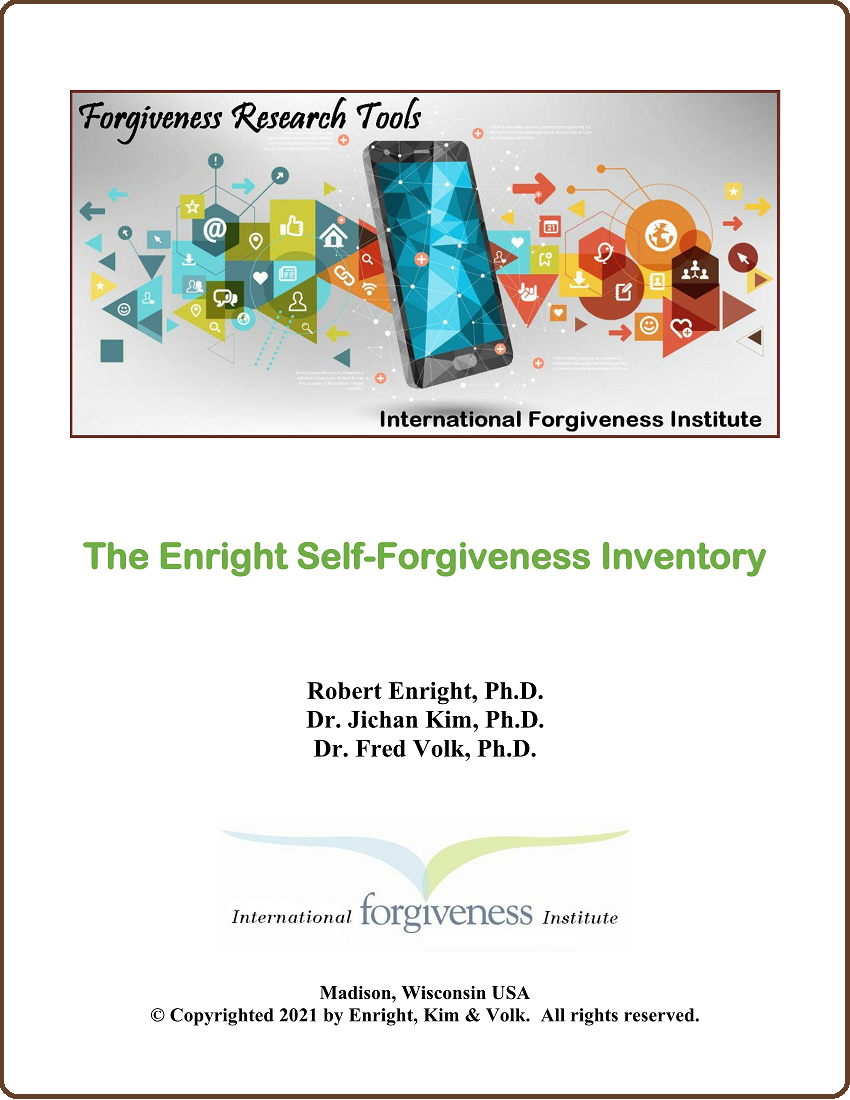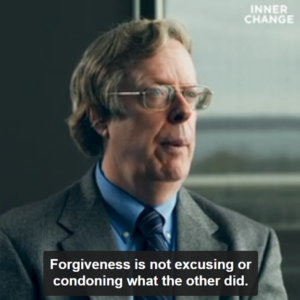Forgiveness News
TIME Magazine: Forgiveness is One of Mankind’s Most Important Innovations
Calling forgiveness one of mankind’s “most important innovations,” TIME magazine is doubling down on its 22-year infatuation with the moral virtue by declaring, “Beset by a global plague, political turmoil, and social reckonings, it’s time for forgiveness to go viral.”
The internationally acclaimed news publication first introduced the science of forgiveness to its readers on March 28, 1999, in an essay titled “Should All Be Forgiven?” That widely-cited introductory overview of forgiveness—one of the first ever in a publication designed for the general public—helped usher in a plethora of forgiveness-related articles since then that reported on the superabundance of new research projects focused on forgiveness.
“In the past two years, scientists and sociologists have begun to extract forgiveness and the act of forgiving from the confines of the confessional, transforming it into the subject of quantifiable research,” the TIME article in 1999 sermonized. “In one case, they have even systemized it as a 20-part ‘intervention’ that they claim can be used to treat a number of anger-related ills in a totally secular context. In short, to forgive is no longer just divine.”
The “20-part intervention” in the TIME quote (above) is a reference to the Enright Process Model of Forgiveness that was just being developed at that time by Dr. Robert Enright, a University of Wisconsin-Madison clinical psychology professor and forgiveness researcher. Dr. Enright had founded the International Forgiveness Institute four years earlier.
For his leadership work with that early model and for his development of innovative forgiveness interventions, TIME magazine crowned Dr. Enright “the forgiveness trailblazer.” Shortly after receiving that recognition, The Los Angeles Times editorialized that Dr. Enright is “the guru of what many are calling a new science of forgiveness.” The Christian Science Monitor called him “the father of forgiveness research.”
Fast forward 22-years and you will discover an updated and enthusiastic TIME magazine essay with this headline: “After a Year That Pushed Us to the Brink, It’s Time for Forgiveness to Go Viral.” The dictionary definition of “going viral,” of course, is when an idea is of such significance that it spreads quickly and widely on the Internet. In this case, it also refers to the actual implementation of that idea which is described in the article much like a miracle cure:
“It is a powerful solution backed up by both cutting edge neuroscience and age-old wisdom. It leads to greater cooperation, eases conflict, increases personal happiness, lowers anxiety and is completely free. It’s called forgiveness.”
One of the studies cited in this latest article is a comparison of various forgiveness interventions. Among those available for testing, the study concludes, Dr. Enright’s interventions are the most effective. “Using theoretically grounded forgiveness interventions is a sound choice for helping clients to deal with past offenses and helping them achieve resolution in the form of forgiveness,” according to the study. “. . . the advantage for individual interventions was most clearly demonstrated for Enright-model interventions.” (Efficacy of psychotherapeutic interventions to promote forgiveness: a meta-analysis)
That recent TIME article also makes a direct comparison between the success of the forgiveness coalition and the “mindfulness and meditation” movement:
“Like forgiveness, mindfulness and meditation have been shown in many circumstances to reduce stress levels, mitigate heart disease, and lower blood pressure. Can we create the same level of cultural penetration for forgiveness? Our future may well depend on it. Beset by a global plague, political turmoil, and social reckonings, it’s time for forgiveness to go viral.”
The latest TIME article was authored by Andrew Serazin, President of the Templeton World Charity Foundation and Chair of the Forgiveness Forum, a series of global conversations on the mental and physical health benefits of forgiveness.
Editor’s Note: To illustrate the dramatic upward trajectory of the forgiveness movement, when Dr. Enright began exploring the social scientific study of forgiveness in 1985, there were no published empirical studies on person-to-person forgiveness. Today there are more than 3,000 published articles on that subject according to the National Institutes of Health (NIH), many of them authored by Dr. Enright during his 35+ years of forgiveness research and intervention ingenuity.
- Read the full TIME article: “After a Year That Pushed Us to the Brink, It’s Time for Forgiveness to Go Viral.”
- Read the full March 28, 1999 TIME article: “Should All Be Forgiven?”
World Education Week Features Dr. Enright’s Forgiveness Education Initiatives
World Education Week 2021, an annual celebration of practical educational innovations that kicks off this week, will focus on Dr. Robert Enright’s Forgiveness Education initiatives—particularly those in Greece, Northern Ireland, and Liberia (West Africa).
The event, sponsored by the Templeton World Charity Foundation, provides a platform for schools and education organizations to share how they have developed their expertise with the express purpose of inspiring other schools and organizations to understand the journey to excellence. More than 100 schools and organizations around the world will be sharing their unique expertise and success stories with a global audience.
 “The best thing we can do to build a better future is empower our students with the social and emotional tools they will need to live healthy, productive, thriving lives,” according to Andrew Serazin, President of Templeton World Charity Foundation. “Forgiveness is one of those critical tools.”
“The best thing we can do to build a better future is empower our students with the social and emotional tools they will need to live healthy, productive, thriving lives,” according to Andrew Serazin, President of Templeton World Charity Foundation. “Forgiveness is one of those critical tools.”
As outlined on the World Education Week website, Forgiveness Forum, a panel of experienced forgiveness teachers and educational advocates from around the world will share their unique experiences building forgiveness into curriculums and discuss its impact on classroom dynamics, on student attainment outcomes, and on teacher well-being.
Two members of that three-person panel of experts have a combined 20 years of experience either teaching students or educating teachers about Dr. Enright’s Forgiveness Education Program:
- Dr. Peli Galiti,
 Ph.D., M.Ed., has been conducting training workshops for Greek teachers for the past 9 years and has trained more than 600 teachers to use Forgiveness Education. The Program is now being taught to more than 6,000 students as part of the Greek Forgiveness Education Program that Dr. Galiti directs.
Ph.D., M.Ed., has been conducting training workshops for Greek teachers for the past 9 years and has trained more than 600 teachers to use Forgiveness Education. The Program is now being taught to more than 6,000 students as part of the Greek Forgiveness Education Program that Dr. Galiti directs.
. - Annette Shannon, Learning Support Teacher at Holy Cross Girls’ School in Belfast, Northern Ireland, has been teaching and coordinating the school’s Forgiveness Education Program for the past 11 years.
Another prominent participant in World Education Week, Bishop Kortu Brown, Chairman/CEO of Church Aid Inc., has been National Coordinator of the Liberia Forgiveness Education Program since it was established by Dr. Enright nearly 10 years ago. Bishop Brown also appears in a 30-second promotional video about the week’s activities.
The widely acclaimed Forgiveness Education Program, developed by Dr. Enright along with collaborating curriculum experts and experienced teachers, is administered by the International Forgiveness Institute. Using children’s story books and Social Emotional Learning (SEL) techniques, the Program teaches students about the five moral qualities most important to forgiving another person–inherent worth, moral love, kindness, respect and generosity. The Program is now being used in more than 30 countries around the world.
Learn more and register for World Education Week activities (all sessions are free) on the Forgiveness Forum website.
DOES PRACTICING THE VIRTUE OF FORGIVENESS MAKE YOU A MORE LOVING PERSON?
How many times have you heard or been asked the age-old question of: “Which came first, the chicken or the egg?” While that problematic conundrum may never be adequately answered, researchers are confident they are making inroads into solving a similar enigma: “Which is first required to engender the other, forgiveness or love?”
A just-published research study by world-renowned forgiveness trailblazer Dr. Robert Enright and three of his associates helped provide some answers to that larger question by examining three related questions:
- Do forgiveness and love develop together?
- Does love or forgiveness predict the other at a later time?
- Does one’s spirituality moderate the relationship between forgiveness and love?
The study, The Development of Forgiveness and Other-focused Love, was published last month in the online version of the Journal of Psychology and Theology, a peer-reviewed academic journal. It explores the development of forgiveness and other-focused love and examines the role of spirituality in the relationship between forgiveness and love.
As part of the study, participants from a large Christian university filled out measures of compassionate love, forgiveness, and dedication to God at Time 1 (T1) and measures of love and forgiveness after 4 weeks at Time 2 (T2). While love at T1 did not predict forgiveness at T1 or T2, forgiveness at T1 positively predicted love at T2, indicating that forgiveness temporally preceded love.
“Because the aim of the study was to see the natural unfolding of forgiveness and love over time, there was no treatment or intervention between T1 and T2,” according to study researcher Jican J. Kim, an Associate Professor of Psychology and Director of the M.A. in Applied Psychology program at Liberty University, Lynchburg, VA. “The results, however, suggest that we may be able to help people grow in other-focused love by helping them to forgive. That’s a really dramatic revelation.”
Dr. Enright emphasized those findings by explaining that the study shows a possibility that as one grows in the virtue of forgiveness (toward a specific offender), the person might experience growth in love toward others in general, thus becoming a more loving person (through the act of forgiveness toward a particular offender).
“In theory, this idea seems to have merit because a forgiving person must be able to love the most unlovable person–one’s offender,” Dr. Enright added. “That kind of love, what we call agape love, might make loving others in general comparably easy.”
The evidence from this study, together with findings from other recent empirical studies, have only begun to examine the development and relationship between forgiveness and love—a relatively new focus for forgiveness researchers. Further research needs to be done to document in what ways one’s practice of forgiveness results in greater love toward others.
The two researchers agree, however that it is time to extend forgiveness interventions with adults to not only focus on psychological healing of the unjustly treated but also to investigate how forgiveness can promulgate the development of other-focused love.
“The fact that forgiveness can increase love at a later time tells me that love and forgiveness grow together and the practice of forgiveness is a concrete
expression of love that matures over time.”
Dr. Jichan J. Kim
Read the full report: The Development of Forgiveness and Other-focused Love
Research Report Authors:
- Jiahe Wang Xu is a graduate student in the Department of Educational Psychology at the University of Wisconsin-Madison. Her research interest is in forgiveness and the development of agape love.
. - Jichan J. Kim (Ph.D., University of Wisconsin-Madison) an Associate Professor of Psychology and the Director of the M.A. in Applied Psychology program at Liberty University, Lynchburg, VA. His research focuses on interpersonal, self-, and divine forgiveness.
. - Naomi Olmstead (M.A. Psychology, Liberty University) is a secondary educator at Lanakila Baptist School, Ewa Beach (island of O’ahu), Hawaii.
. - Robert D. Enright holds the Aristotelian Professorship in Forgiveness Science within the Department of Educational Psychology at the University of Wisconsin-Madison and is a founding board member of the International Forgiveness Institute in Madison, Wisconsin.
Forgiveness Research Tools Flying Out the Door and Around the World
When The Christian Science Monitor called him “the father of forgiveness research” nearly 20 years ago (Dec. 19, 2002), Dr. Robert Enright, a University of Wisconsin-Madison educational psychology professor, had just completed what the news organization called “the first study ever to show a cause-and-effect finding regarding physical health. . . and forgiveness.”
Today, as Dr. Enright nudges close to 37 years of forgiveness study and interventions, his research tools and techniques have become the preferred instruments of social scientists and researchers around the world. To stimulate even further growth in the burgeoning field, the forgiveness pioneer is giving his research tools away at no cost and with no strings attached.
On April 20 of this year, Dr. Enright announced that the non-profit educational organization he founded–the International Forgiveness Institute (IFI)–would provide his highly regarded scientific research tools absolutely free to any forgiveness researcher who requested them. In just the four months since then, the IFI has received and fulfilled orders for 252 copies of his individual tool documents from researchers in 21 foreign countries and 27 US states.
The free research tools available from the IFI and the number of copies distributed since April include:
- The Enright Self-Forgiveness Inventory (ESFI) – 76 Requests
This measure is based on the conceptualization of forgiveness as a moral virtue. The ESFI is a 30-item scale featuring six subscales with five items each. Five additional items at the end of the scale allow for measurement of Pseudo Self-Forgiveness (PSF). Although several competing self-forgiveness measures exist, Dr. Enright’s is the only one that captures the idea that self-forgiveness is a moral virtue that includes behavior toward the self.
- The Enright Forgiveness Inventory-30 (EFI-30) – 85 Requests
This tool is a shorter version of the Enright Forgiveness Inventory for Adults that has become the interpersonal forgiveness measure of choice for research professionals in the U.S. and abroad since its development in 1995. The EFI-30 reduces the number of items from 60 to 30 for the purpose of a more practical assessment of this construct. Data from the United States were used in the creation of the new measure and applied to seven nations: Austria, Brazil, Israel, Korea, Norway, Pakistan, and Taiwan to develop its psychometric validation.
- The Enright Group Forgiveness Inventory (EGFI) – 44 Requests
The EGFI has 56 items across seven subscales with each subscale having eight items. Those subscales measure a group’s motivation and values regarding forgiveness, peace, and friendliness toward the other group. The instrument is a valuable tool that could enhance peace efforts in the world. The EGFI was validated and published earlier this year by Dr. Enright and a team of 16 international researchers who collected data from 595 study participants in three different geographic and cultural settings of the world—China and Taiwan, Slovenia, and the US.
- The Enright Forgiveness Inventory for Children (EFI-C) – 47 Requests
The EFI-C is an objective measure of the degree to which a child forgives another who has hurt him or her deeply and unfairly. It is a 30-item scale similar to the 60-item adult version and is presented orally to very young children and in writing to those who can read well. Thanks to a researcher in Pakistan, the EFI-C is now available in the Urdu language—the native language of an estimated 230 million people, primarily in South Asia.
“Making these tools available to researchers at no cost is one way to grow the repository of forgiveness knowledge,” Dr. Enright explained. “This area of moral development has produced significant advancements in the areas of education, medical treatment, and therapy, so why not encourage others to help expand that information base?”
“There’s no getting around it – forgiveness is good for you and holding a grudge is not.”
-The Christian Science Monitor
- Learn more and order Dr. Enright’s free tools on the Forgiveness Research Tools page.
- Read how the EFI-30 was tested and validated in 8 countries around the world.
- Read the entire forgiveness article in The Christian Science Monitor.
This is what forgiveness is not. . .
A newly-released video interview with forgiveness expert Dr. Robert Enright called “This is what forgiveness is not” is now available to view at no cost on the website Inner Change.
The 3 min. 22 sec. video was recorded by a film production studio based in Switzerland that has cinematic staff in the US and more than a dozen other countries around the world. It is one of 13 short video segments that Inner Change has recorded with Dr. Enright and which it will release over a 2-year period. Thus far, five of the Dr. Enright interviews have been made available:

Dr. Robert Enright, founder of the International Forgiveness Institute.
- This is what forgiveness is not – Dr. Enright outlines four aspects of what forgiveness is not:
- It is not excusing or condoning.
- It is not forgetting but remembering in new ways.
- It does not necessarily mean reconciliation although it could happen if the other becomes trustworthy.
- When you forgive, you do not throw justice away, you bring it alongside.
- The Essence and Definition of Forgiveness (2 min. 15 sec.) – In this interview, Dr. Enright defines forgiveness from an interdisciplinary, cross-cultural, and interfaith perspective that basically includes what Socrates would call the “essence” or “core” of forgiveness.
. - How I Became Involved in Forgiveness Studies (4 min. 16 sec.) – Dr. Enright explains how after years of studying moral development at the behest of his employer, the University of Wisconsin-Madison, he asked himself, “What might make a difference in the world in people’s lives?” The answer he came up with in 1985 was “the virtue of forgiveness” which he saw as a way to heal from the injustices we all face.
. - The Two Paradoxes of Forgiveness (1 min. 0 sec.) – In this brief segment, Dr. Enright outlines the two paradoxes (apparent contradictions that are not contradictions) of forgiveness: 1) by forgiving, you are giving unexpected goodness to the person who hurt you; and, 2) in the process, you become stronger and emotionally healed.
- Learning to Forgive in the Small Things (3 min. 19 sec.) – By practicing forgiveness with the smaller hurts in your life, what Dr. Enright calls “exercising your forgiveness muscles,” you can become forgivingly fit and more easily handle the larger injustices in life.
The Inner Change website includes interviews with psychologists, spiritual teachers, activists, and neurologists. Those interviews are part of the website’s “Peace Video Library” where visitors can “discover what it means to be fully human, what resources we all share, how we can tap into our full potential as humans.” Other website features include musical meditation segments following each video and a collection of more than 30 music videos all with original songs recorded at Chernobyl (the site of the 1986 nuclear power plant disaster in the Soviet Union) and the nearby ghost town of Prypiat in Northern Ukraine.



